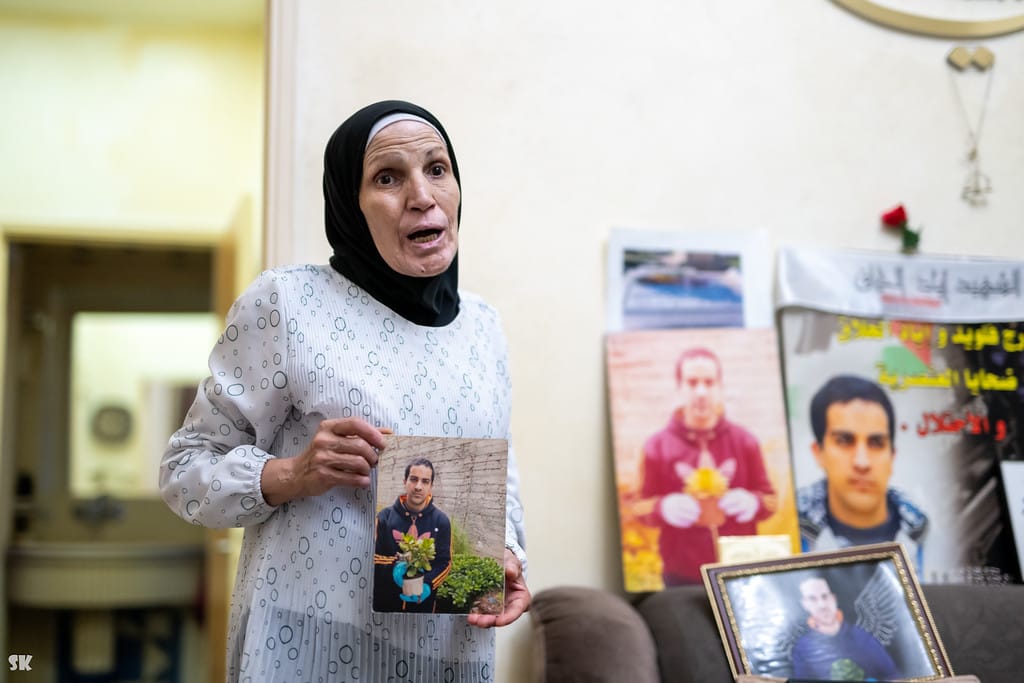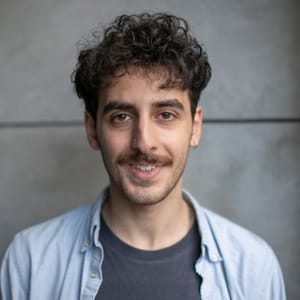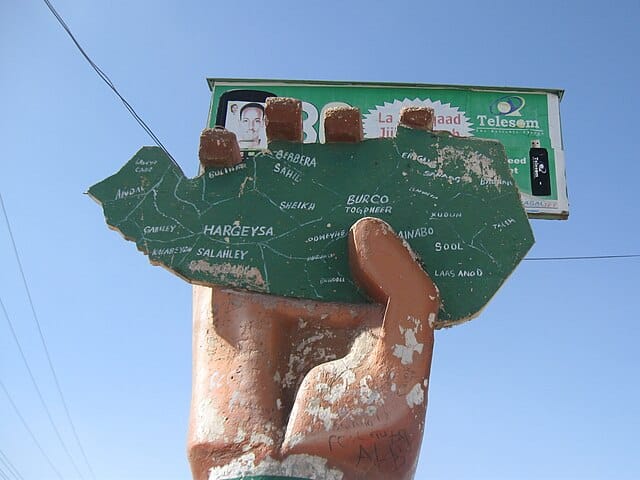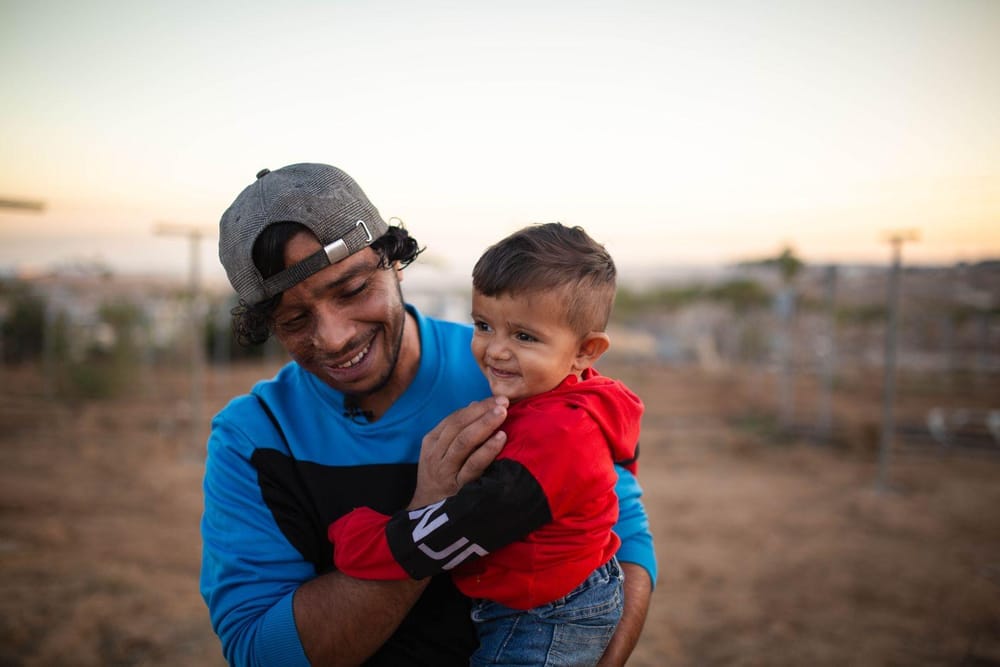Israel is in denial about police brutality
Israeli politicians have expressed remorse at Eyad Hallaq’s killing, but it’s clear they view it as an aberration.

The murder of George Floyd has created a newfound eagerness to confront racism and police brutality across the world. Israelis have joined the global movement, demonstrating outside the US diplomatic mission in Tel Aviv. Many have drawn comparisons between the state-sanctioned brutalisation of African Americans and the mistreatment of Ethiopian and Eritrean Jews at the hands of Israel’s police. However, these efforts have failed to address the primary victims of police brutality in the country: Palestinian citizens of Israel.
Five days after former Minneapolis police officer Derek Chauvin asphyxiated George Floyd, Israeli border police shot Eyad Hallaq, a 32-year-old Palestinian with autism. In a harrowing testimony, Hallaq’s carer detailed how the disabled East Jerusalem resident had mustered the courage to walk the winding roads of Jerusalem’s Old City to participate in a vocational training programme, only to end up cowering in a bin room, pleading for his life. Hallaq, his carer told Haaretz, was kind-hearted, and squeamish at the sight of blood.
Senior Israeli politicians, including Alternate Prime Minister Benny Gantz and Minister of Public Security Amir Ohana, have expressed remorse at Hallaq’s killing, and pledged to investigate it. Yet it was clear from public pronouncements that they viewed Hallaq’s murder as an aberration, rather a product of deep-rooted, systemic racism.
The country’s liberal commentariat is in a similar state of denial. In her Haaretz column, Nave Dromi dismissed comparisons between Floyd and Hallaq. In his, Anshel Pfeffer contended that ‘Decades of Occupation Killed Eyad Hallaq, Not Racism’. Pfeffer’s argument exposes an acute cognitive dissonance among many self-styled progressive Israelis. After all, what is the Occupation if not a system of military rule premised on and enacted through racism?
By focusing on the Occupation, Pfeffer sidesteps the fact that the racism which led to Hallaq’s killing conditions the entirety of Israel and Palestine, justifying violence against a population that is either a “demographic threat” or a “security concern”, depending which side of the green line you’re on. His argument fails to account for the 59 of his Arab compatriots who have been killed by police, soldiers, and civilians in non-terror related incidents since 2000.
The intensity of the problem within Israel becomes evident by contrast. African-Americans comprise 13.4 per cent of the US population, but account for 23.4 per cent of fatal police shootings. Palestinian citizens comprise 21 cent of the Israeli population, but make up 61 cent of police killings.
Jafar Farah, director of The Mossawa Center, a civil society group that promotes the rights of Palestinian citizens in Israel, told Vashti that actual police violence is only the tip of the iceberg: “There is political and legal back-up for the police brutality they [Palestinian citizens of Israel] face.”
This “back-up” is the linchpin of discriminatory policing in Israel. In only two out of fifty-nine killings of Palestinian citizens of Israel were convictions reached (of six and thirty months in prison respectively). Moreover, the processes are convoluted and opaque. It took three years for the State Attorney’s Office to decide not to prosecute the police officers involved in the case of Eyad Abdallah, shot and killed in 2015 in a police chase in Ein Naqquba, an Arab village west of Jerusalem. Then there is the police’s mishandling of their three-year-long investigation into the 2017 death of Yakub Abu al-Kiyan, a Bedouin teacher who bled to death as police looked on during Israel’s demolition of the village of Umm al-Hiran. The innocent maths teacher was not only shot without cause, but denied life-saving medical attention as he bled to death.
Attempts have been made at holding the police accountable, yet most have been entirely performative. Israel’s government-led inquiry into the killing of 13 Palestinians (twelve citizens of Israel and one resident of Gaza) during peaceful protests in 2000 found no grounds for the use of live ammunition. No officers were charged. Meanwhile, the Police Internal Investigations Department (PIID), established in 1992 following recommendations from an inter-ministerial team collaborating with the Ministry of Justice and the Ministry of Police, prosecuted only 3.2 per cent of complaints in 2015.
Palestinians bear the brunt of racially-motivated police brutality, but by no means its entirety. Since 2014, eighteen Israeli citizens have been killed by the police: eleven Palestinian, four Mizrahi, two Ethiopian and one Russian. And while the killings of Jewish Israelis by police are more likely to be investigated, this is not consistently the case. After the killing of Ethiopian Jewish teenager Solomon Tekah sparked nationwide protests, the police officer responsible was indicted on charges of negligent homicide; proceedings are ongoing. However, the investigation into the killing of a Mizrahi man, Omer Ashkenazi was shelved due to insufficient evidence, a decision described by Ashkelon Judge Robin Lavi as “seriously flawed”.
Farah was himself the subject of a widely-reported instance of police brutality. In 2018, he participated in a peaceful protest in Haifa against Israel’s conduct in Gaza. Farah was arrested along with twenty other protestors, and while in police custody, an officer broke his knee; seven other protestors were also beaten. Over two years later, the legal proceedings are only just starting and he isn’t expecting to receive justice. “Everybody from the Head of the Police in Jerusalem to the police department in Haifa backed up the officer.” The solution to the “culture of violence and racism in the police”, he believes, lies less in policing policy reforms than in national soul-searching.
There are signs that George Floyd’s murder has catalysed this introspection. During an anti-annexation protest on Saturday, Jewish MKs and protestors trod new ground, with some even deploying the taboo term “apartheid”. Although the crowd gathered to protest annexation, Eyad Hallaq’s face and name could be seen on placards and banners across Tel Aviv’s Rabin Square. It seemed protesters were starting to join the dots between oppression on both sides of the green line. Acknowledging how racism underpins both police brutality and the Occupation is the first step to creating a more equitable system for all Israelis and Palestinians. Hallaq’s memory, and that of all the other victims of Israeli police brutality, demand it. ▼
Jonathan Shamir is a writer and editor based in Haifa.
Author

Jonathan Shamir is a writer and editor at Haaretz.
Sign up for The Pickle and New, From Vashti.
Stay up to date with Vashti.



